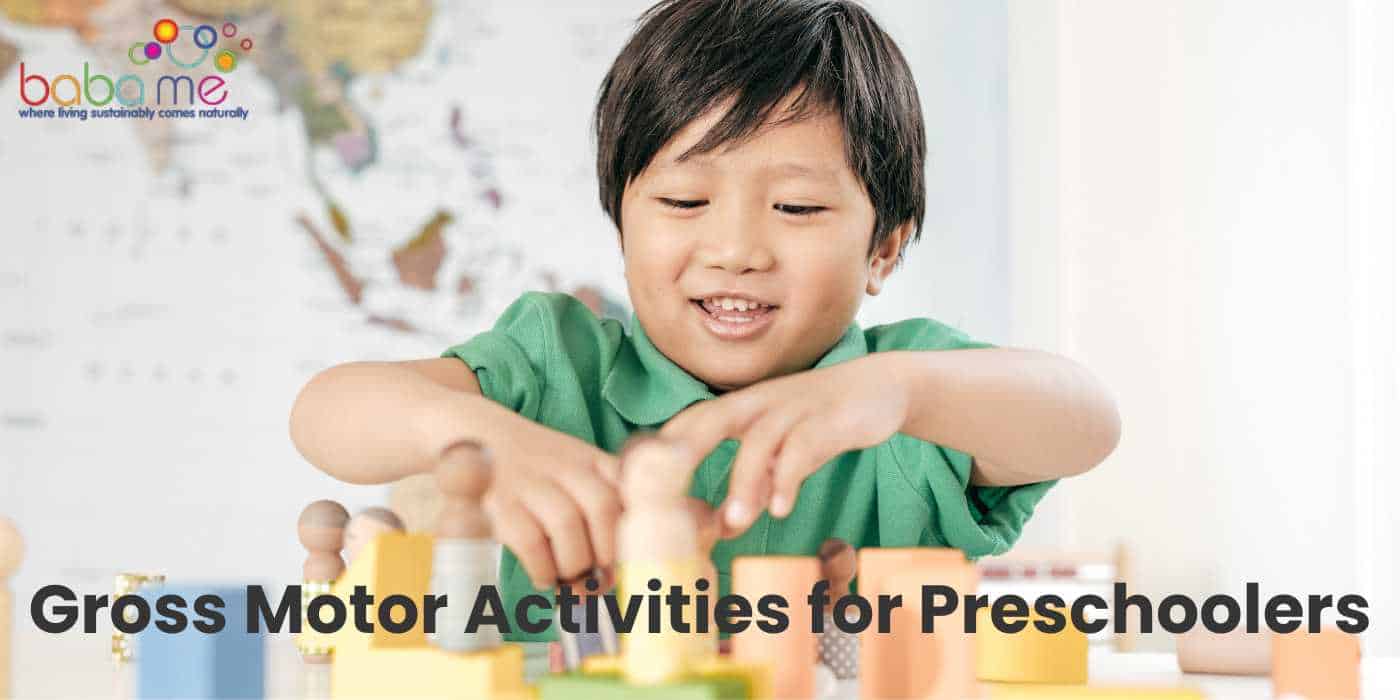As parents, we all want our children to be active, healthy, and most importantly, to have fun while learning. That’s where gross motor activities come in – these are not just games, but important tools that help build physical skills essential for your preschooler’s overall development.
From running and jumping to balancing and coordination, our carefully curated list of fun activities will ensure your child develops these skills while enjoying their time outdoors.
Get ready to make learning an unforgettable adventure!
Incorporating gross motor activities into a preschooler’s daily routine is crucial for their physical, cognitive, and social-emotional development. Parents and caregivers can encourage children to engage in gross and fine motor skills and activities by providing opportunities for active play, such as running, jumping, climbing, and dancing.
Why Gross Motor Activities are Important
Gross motor skills refer to the ability to control and coordinate the large muscles of the body, such as those in the arms, legs, and torso. These large motor skills are essential for children’s overall development, as they help children gain strength, balance, and coordination.
Engaging in gross motor activities also helps children get regular exercise and physical activity, which is important for maintaining a healthy lifestyle. Research shows that regular physical activity can help reduce the risk of obesity, diabetes, and other chronic health conditions in children.
Moreover, to develop gross motor skills and activities help children develop their cognitive and social-emotional skills. Through physical play, children learn to solve problems, make decisions, and work collaboratively with others. They also gain self-confidence and a sense of accomplishment as they master new skills and challenges.
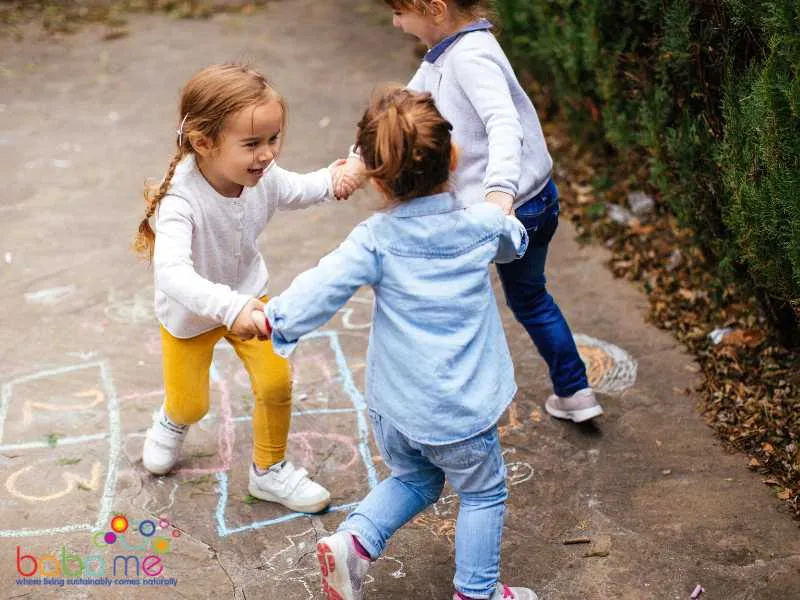
Examples of Gross Motor Activities
Preschoolers are full of energy and love to move around. Gross motor activities are a great way to help them develop their large muscle groups, improve coordination, and burn off some of that energy. Here are some fun and engaging gross motor activities to try with your preschooler:
Running and Jumping
Running and jumping are great ways to get your preschooler moving and improve their gross motor skills. You can set up obstacle courses with cones or hula hoops, or have them race against a friend or sibling. Jumping activities can include jumping jacks, jumping rope, or jumping on a trampoline.
Climbing and Balancing
Climbing and balancing activities help improve your preschooler’s coordination and balance. You can set up a small climbing wall or a jungle gym, or have them balance on a balance beam or a line on the ground. You can also set up an indoor obstacle course, with different types of climbing and balancing challenges.
Throwing and Catching
Throwing and catching activities help improve your preschooler’s hand-eye coordination and motor planning skills. You can play catch with a ball or a beanbag, or set up a target for them to throw the bean bags at. You can also play games like Frisbee or ring toss.
Dancing and Moving to Music
Dancing and moving to music is a fun way to get your preschooler moving and improve their gross motor skills. You can put on some music and have them dance or do simple movements like jumping, hopping, or skipping. You can also play games like freeze dance or musical chairs.
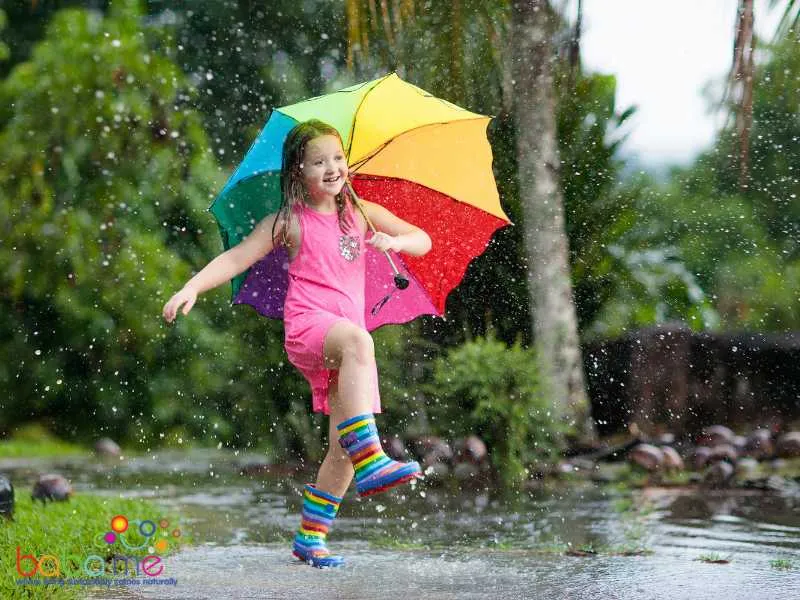
Outdoor Gross Motor Activities for Preschoolers
Outdoor play is a fantastic way for preschoolers to develop their gross motor skills. Engaging in activities that involve running, jumping, and climbing not only encourages physical fitness but also helps enhance coordination, balance, and spatial awareness.
Tag-You’re-It: A classic game of tag will get your preschooler moving, running, and changing direction, fostering speed and agility.
Jump the Rope: This simple activity enhances coordination, timing, and balance, while providing lots of fun.
Backyard Obstacle Course: Set up an obstacle course with hula hoops, chairs, and ropes. This helps develop strength, flexibility, and coordination.
Scavenger Hunt: Create a list of items for your child to find in your backyard. This encourages exploration and movement.
Sidewalk Chalk Hopscotch: Draw a hopscotch grid on the sidewalk (if no chalk use painter’s tape). Hopping and jumping improve balance and coordination.
Bubble Chase: Blow bubbles and let your child run around popping them. This can encourage running, jumping, and hand-eye coordination.
Ball Games: Simple games like catch, soccer, or basketball enhance coordination, strength, and timing.
Dancing: Play some music and have a dance-off. Dancing promotes flexibility, balance, and body awareness.
Gardening: Simple gardening activities like digging, planting, and watering can enhance fine and gross motor skills.
Water Play: Set up a mini water park with sprinklers, buckets, and water toys. This encourages movement and exploration while keeping them cool in summer.
Outdoor play doesn’t have to be structured, sometimes little kids just want to run and play and do a fun activity that exercises their entire body and brain – but they just think they are having great fun!
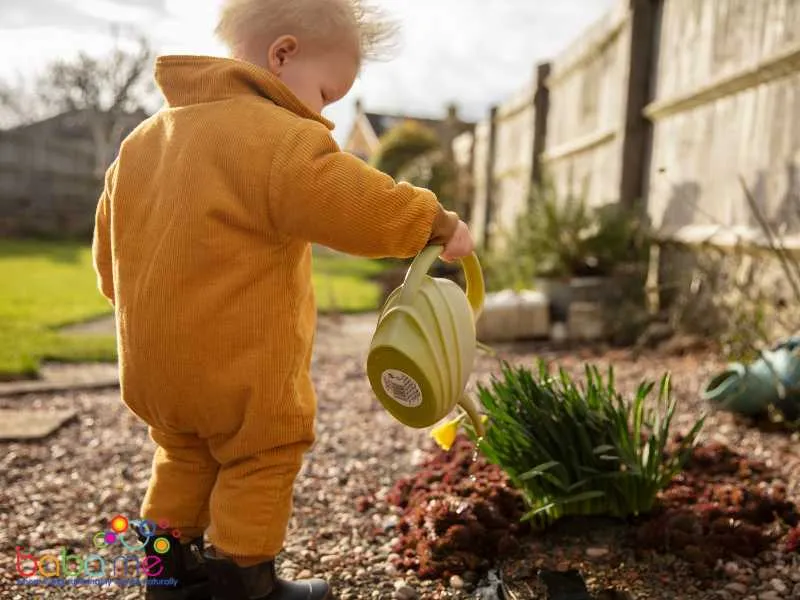
How to Create a Safe Environment for Gross Motor Activities
When planning your child’s gross motor skills and activities for preschoolers, safety should always be a top priority. Here are some tips to ensure a safe environment:
Choose an appropriate location: Make sure the space you choose is large enough for the activity and free of obstacles that could cause injury. If the activity involves equipment, make sure it is in good condition and appropriate for the age and skill level of the children.
Supervise closely: Always have an adult present to supervise the activity and ensure that children are following safety rules. Encourage children to take turns and play cooperatively.
Set clear rules: Explain the rules of the activity to the children so they understand what is expected of them. Make sure they know not to run or push each other, and to stay within the designated play area.
Provide protective gear: If the activity involves riding bikes or scooters, make sure children wear helmets and other protective gear. For activities that involve jumping or climbing, provide mats or other cushioning to prevent injuries from falls.
Be prepared for emergencies: Have a first aid kit on hand in case of minor injuries. Make sure you have a plan in place for more serious injuries or emergencies, such as calling 911 or having a designated person to take children to the hospital.
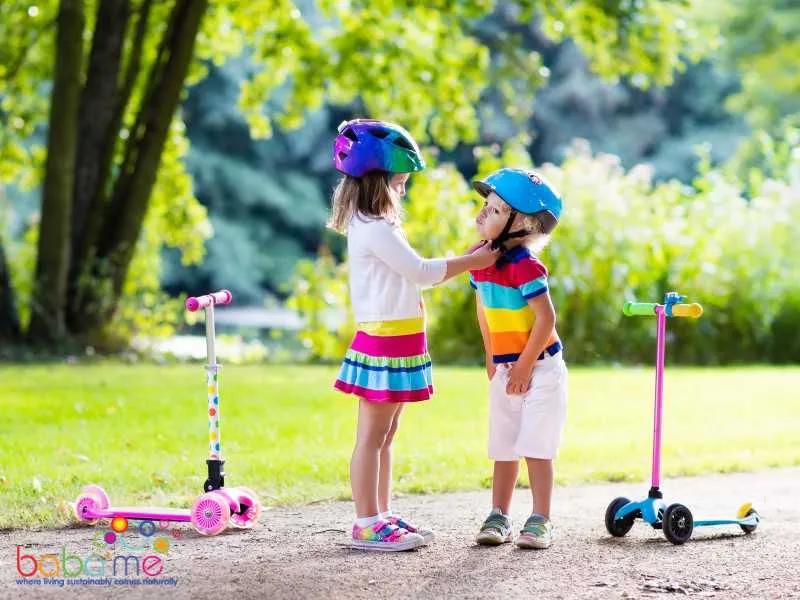
Tips for Encouraging Preschoolers to Participate in Gross Motor Activities
Getting preschoolers to participate in gross motor activities can be a challenge, especially if they are not used to being physically active. Here are some tips to help encourage them to get moving:
Make it fun: Incorporate games, music, and other fun elements into gross motor activities to make them more enjoyable for preschoolers.
Be a role model: Show your preschooler how much fun being active can be by participating in activities with them.
Set realistic goals: Start with simple activities and gradually increase the difficulty level as your preschooler becomes more comfortable.
Offer choices: Let your preschooler choose which gross motor activities they want to participate in to give them a sense of control and ownership.
Provide positive reinforcement: Praise your preschooler for their efforts and accomplishments, even if they don’t succeed at first.
It’s important to remember that every child is different and may have different interests and abilities when it comes to gross motor activities. Be patient and encouraging, and try to make indoor gross motor activities as enjoyable as possible for your preschooler.
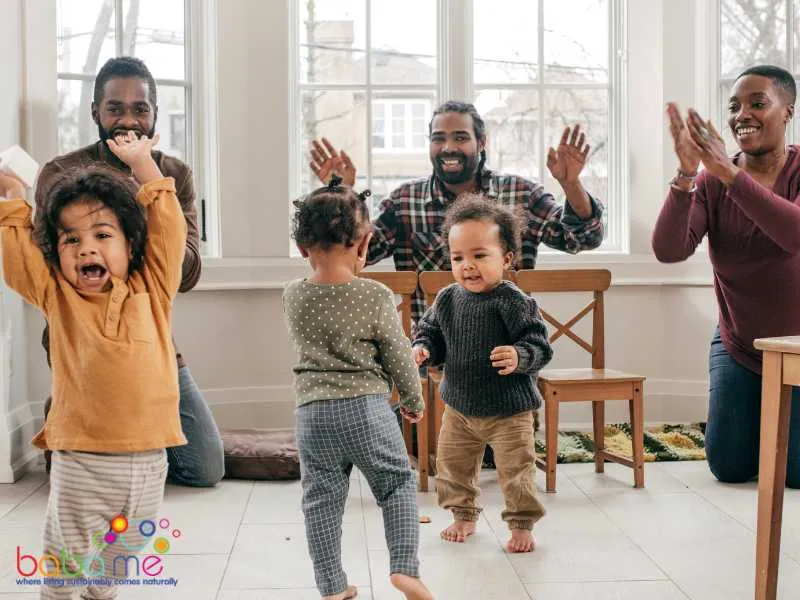
FAQs gross motor skill activities for preschoolers
What are gross motor activities for preschoolers?
Gross motor activities for preschoolers include activities that promote the physical development because of large muscle groups and coordination, such as:
Running, jumping, and hopping games
Riding bikes or scooters
Climbing structures or playing on playground equipment
Playing catch or other ball games
Dancing or participating in movement-based activities
Participating in sports or active games with peers.
What are 5 gross motor skills a preschooler can do?
Five other gross motor skills activities that a preschooler can do include:
Running and jumping with coordination
Pedaling a bike or using a scooter
Climbing and playing on playground equipment
Throwing and catching a ball
Participating in sports or group games with peers.
What are examples of gross motor activities?
Examples of gross motor activities include:
Running, jumping, and hopping
Climbing and playing on playground equipment
Riding bikes or scooters
Swimming and other water activities
Participating in sports or group games with peers
Dancing or participating in movement-based activities
Playing catch or other ball games
Tumbling, somersaults, and other gymnastics activities.
What can a 4-year-old do for gross motor development?
For gross motor development, a 4-year-old child can engage in activities such as:
Running, jumping, and hopping games
Riding bikes or scooters
Climbing structures or playing on playground equipment
Playing catch or other ball games
Dancing or participating in movement-based activities
Participating in sports or active games with peers.
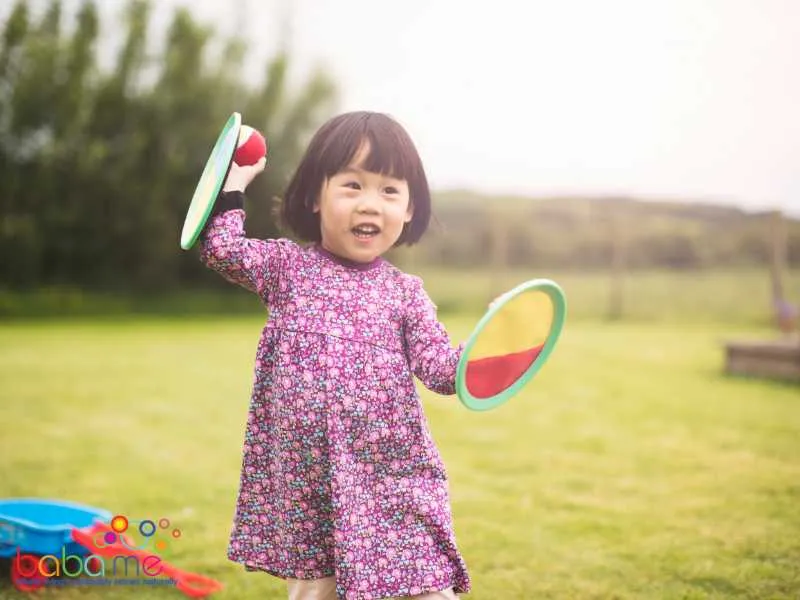
What are simple gross motor activities for kids?
If you’re looking for easy gross motor activities to do with your preschoolers, there are plenty of options that can be done indoors using items you probably already have at home. Here are a few ideas to get started:
Simon Says: This classic game is perfect for getting kids up and moving. Call out commands like “Simon says jump on one foot,” “Simon says hop like a bunny,” or “Simon says do five jumping jacks.”
Balloon Volleyball: Blow up a balloon and have kids hit it back and forth over a makeshift net made out of a string or rope tied between two chairs. This activity helps develop hand-eye coordination and gross motor skills.
Indoor Obstacle Course: Set up a simple obstacle course using items like pillows, cushions, and cardboard boxes. Have kids crawl under a table, jump over a stack of books, and weave in and out of cones made from rolled-up socks.
Dance Party: Put on some music and let kids dance their hearts out. This activity helps develop coordination and encourages creativity.
Yoga for Kids: Look up some simple yoga poses for kids online and have a mini yoga session with your little ones. This activity promotes balance and flexibility while also helping kids relax.
Jumping Jacks and Other Jumping Games: Activities like jumping jacks, jumping over a rope, or jumping in place can help children develop their leg muscles and coordination.
Running Races or Obstacle Courses: Running races or obstacle courses can help children develop their endurance, balance, and coordination.
Balancing and Walking on a Beam or Line: Activities like balancing on a beam or walking along a line help children develop their balance and coordination.
Catching and Throwing Games: Games that involve catching and throwing a ball or other object help children develop their hand-eye coordination, balance, and gross motor skills.
Hula Hoops or Jumping Ropes: Playing with hula hoops or jumping ropes helps children develop their coordination, balance, and agility.
Dancing or Participating in Movement-Based Activities: Dancing or participating in movement-based activities like yoga, martial arts, or gymnastics help children develop their coordination, balance, and flexibility.
What can a 4-year-old do for gross motor development?
For gross motor development, a 4-year-old can engage in activities such as:
Running, jumping, and hopping games
Riding bikes or scooters
Climbing structures or playing on playground equipment
Playing catch or other ball games
Dancing or participating in movement-based activities
Participating in sports or active games with peers.
Jump the brook: Set out two jump ropes or draw two chalk lines to represent a brook and have kids try to jump over it. Vary the width in some spots and narrow it in others for different levels of challenge.
Paper plate skates: Use paper plates to glide along a carpet and try to imitate speed skaters, hockey players, or figure skaters. This activity is great for developing balance and coordination.
Soccer: Let kids enjoy kicking a ball and aiming it toward a goal or a large cardboard box or laundry basket turned on its side. This activity helps develop gross motor skills such as running, jumping, and kicking.

